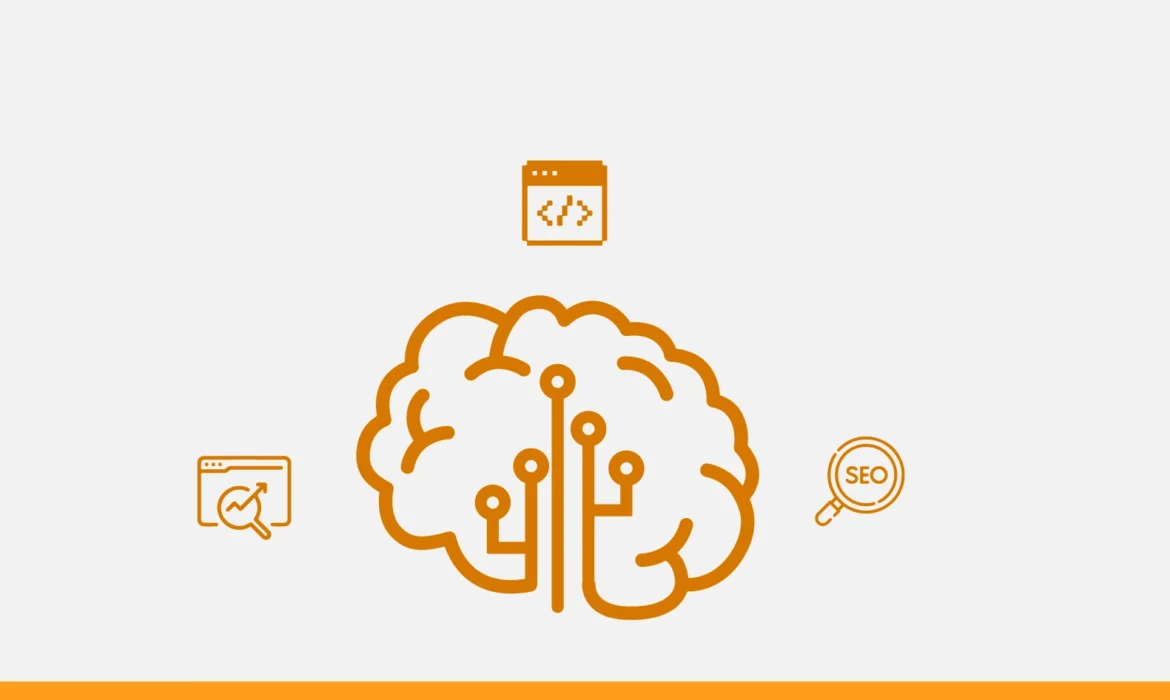
Today, search engines aren’t just about using keywords; they’re about understanding what people really need. Google has introduced new technologies like RankBrain and BERT that shake things up when it comes to ranking search results. These AI tools help Google get a better grip on questions, so you can find answers that actually make sense.
The Rise of AI in Search
In 2015, Google introduced RankBrain, and that was the first time the SEO world really saw how AI could play a role. Today, AI is not just part of Google’s algorithm; it’s a key player in it. Google says that RankBrain is part of every search and impacts a lot of the results. Then in 2019, BERT came along, which made things even better by understanding the details and context of words in searches. It’s like having an AI that doesn’t just hear you but really gets what you’re trying to say.
Understanding RankBrain
What is RankBrain?
RankBrain is a Google algorithm that uses machine learning to handle search queries and provide better results. Instead of sticking to the usual rules, RankBrain picks up on how users interact and gets better at ranking over time.
How Machine Learning Revolutionizes Search Algorithms
- Adaptive Learning: RankBrain looks at how people search to improve the results.
- Handling Confusing Searches: It figures out what people mean with unclear or tricky queries.
- Dynamic Ranking: Content gets ranked depending on how much people interact with it, like clicks and time spent on the page.
Impact on Search Result Relevance
RankBrain makes sure that search results match what users are really looking for, not just the keywords they use. Sites that offer high-quality, relevant content tend to rank higher.
Deep Dive into BERT
What is BERT?
BERT is a model from Google that helps understand the context of words in search queries for natural language processing.
How BERT Enhances Search Understanding
- Contextual Interpretation: BERT examines words not just separately but also considering the sentence as a whole.
- Improved Long-Tail Queries: It improves conversational and question-based search results.
- Better Multilingual Search: BERT can recognize subtle differences across languages.
Impact on Complex Queries
Before BERT, Google had a tough time with questions like:
“Can you get medicine for someone pharmacy? “
Now, thanks to BERT, it understands what people are really asking, which makes search results way better.
AI-Driven Search Optimization Techniques
Machine Learning in SEO Strategy
With AI in the mix, SEO isn’t just about using the right keywords anymore. Here are some key techniques to keep in mind:
- Semantic Search Optimization: Group related topics together in your content.
- User Intent Analysis: Write content that answers the questions people are asking.
- Predictive Search Trends: Use AI tools to guess what users might search for next.
How AI Enhances Content Relevance
- Custom Results: AI adjusts rankings based on what you’ve looked at before.
- Better Voice Search: BERT makes voice searches more accurate.
- Smart Algorithms: Content needs to keep up with AI changes.
Practical Implications for SEO Professionals
Adapting SEO Strategies to AI-Powered Search
- Focus on Natural Language: Talk like people do when they search online.
- Optimize for Long-Tail Keywords: Use longer key phrases that show what people really want to know.
- Content Depth: Make your content thorough so you can show up for a wider range of questions.
Future Trends in AI-Driven SEO
- Zero-Click Searches: With AI, you get quick answers without having to click around.
- Visual & Voice Search: It’s important to be prepared for searches using images and voice.
Challenges and Opportunities
Possible Downsides of AI in Search
- Too Much Dependence on Old Data: AI mainly learns from what’s happened before, which doesn’t always show what’s coming next.
- Content Overload: There’s a lot of competition for content that AI tends to favour.
New Possibilities
- Structured Data: This makes it easier for AI to grasp what the content is about.
- Fun Content: Things like quizzes, FAQs, and videos keep users interested for a longer time.
Real-World Impact on SEO
How does this impact your business? Here are some tips and best practices to consider:
- Focus on Quality Content: As AI gets better at understanding what people need, having well-written and helpful content is more important than ever. Keyword stuffing is out; now it’s all about writing for people instead of just for search engines.
- Understand User Intent: Tools like RankBrain and BERT try to get what users really mean when they search. So, businesses should try to think like their customers. What are they really looking for when they type in a query related to your products or services?
- Optimize for Featured Snippets: Since AI is good at finding detailed answers to specific questions, formatting your content to be chosen as a featured snippet can really improve your visibility.
The Future of SEO in an AI-Driven World
Google’s RankBrain and BERT have really changed how SEO works. It’s no longer just about matching keywords; it’s more about figuring out what people are looking for and how the context affects searches. With AI changing the way search works, businesses that don’t keep up may find themselves at a disadvantage in a crowded online space.
Key Insights for Modern SEO Success
- Focus on What Users Actually Need: Search engines like content that really addresses what people are looking for instead of just cramming in keywords.
- Write Like You Talk: Since SEO is changing, people are searching more casually. So, it’s best to keep your writing natural.
- Stay Updated on AI: It’s key to keep learning and adjusting as search algorithms improve.
If you want to improve your SEO strategy using the latest AI tools, it’s a good idea to team up with experts in search optimization. Working with companies like ClickSeek can help you find effective, data-driven solutions for better SEO results.


